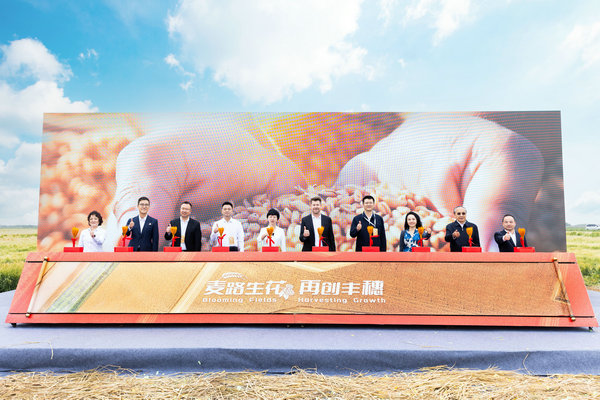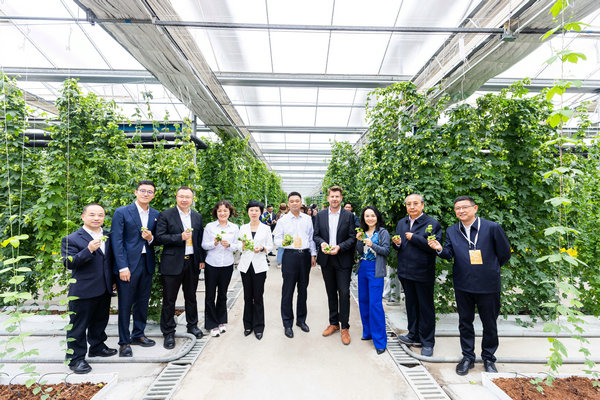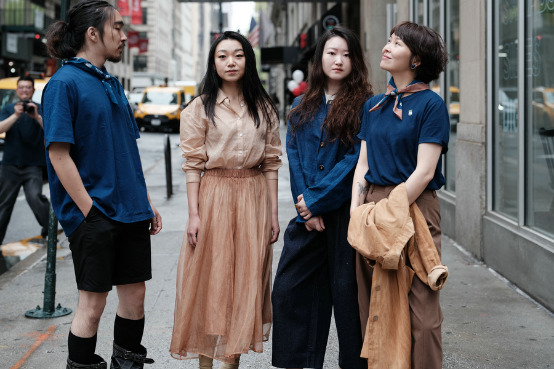Strategic partnership helps beer industry hop up innovation


In partnership with Jiangsu Nongken Group, Budweiser China held its fifth annual Grower's Day on Thursday at Yuntai Farm in Lianyungang, Jiangsu province.
Themed "Blooming Fields, Harvesting Growth", the event celebrated a rich barley harvest season while highlighting significant progress made in agricultural innovation and sustainable brewing practices.
At the heart of the event were two premium barley strains — Y131 and Y148 — jointly developed by Budweiser China and Jiangsu Nongken Group.
The two organizations closely collaborate on barley breeding and research through a strategic partnership formed in 2016. In 2018, Budweiser China introduced 94 high-quality international barley varieties into China.
A professional hybrid breeding team was established in 2019 to build a closed-loop R&D system for locally grown brewing barley. After six years of selective breeding, the Y131 and Y148 varieties have demonstrated excellent brewing properties and sensory performance.
"This is the value of our partnership with Jiangsu Nongken Group — we provide the barley strains while they offer planting land and a strong farming network. Together, we've developed these two locally adapted varieties — marking a key innovation in localized barley breeding," said Jan Clysner, vice-president of Sustainability and Procurement at Budweiser APAC.
He also reported a roughly 10 percent increase in barley yield, calling it "good news for farmers".

Clysner noted that the partnership also enabled Budweiser China to successfully cultivate three types of hops domestically. He emphasized the significance of indoor hop cultivation, explaining that growing hops in greenhouses eliminates variables like climate, soil type and altitude.
"In a controlled indoor environment, innovation becomes much more feasible," he said. "You can develop new hop varieties more easily, and even speed up the innovation cycle. While traditional outdoor hops are harvested once a year, indoor setups allow for three to four harvests — accelerating both yield and research."
Sustainability is another focus of the collaboration. Clysner said the two partners are piloting reduced chemical fertilizer use. "It drastically lowers carbon emissions and increases yield," he said.
"Our target was to reduce carbon emissions across Scope 1, 2, and 3 by 25 percent by the end of 2025. We hit that goal two years early — by the end of 2023," he added.
Looking ahead, Clysner said Budweiser China will continue working closely with Jiangsu Nongken Group to empower local farmers and support the high-quality development of China's beer industry.
During the event, Budweiser China and Jiangsu Nongken Group signed a new phase of their barley breeding cooperation agreement.
To date, Budweiser has purchased 230,000 tons of barley from Jiangsu Nongken Group. The next phase will focus on improving quality and yield using advanced techniques such as marker-assisted selection to speed up the development of new high-end domestic barley strains.



































